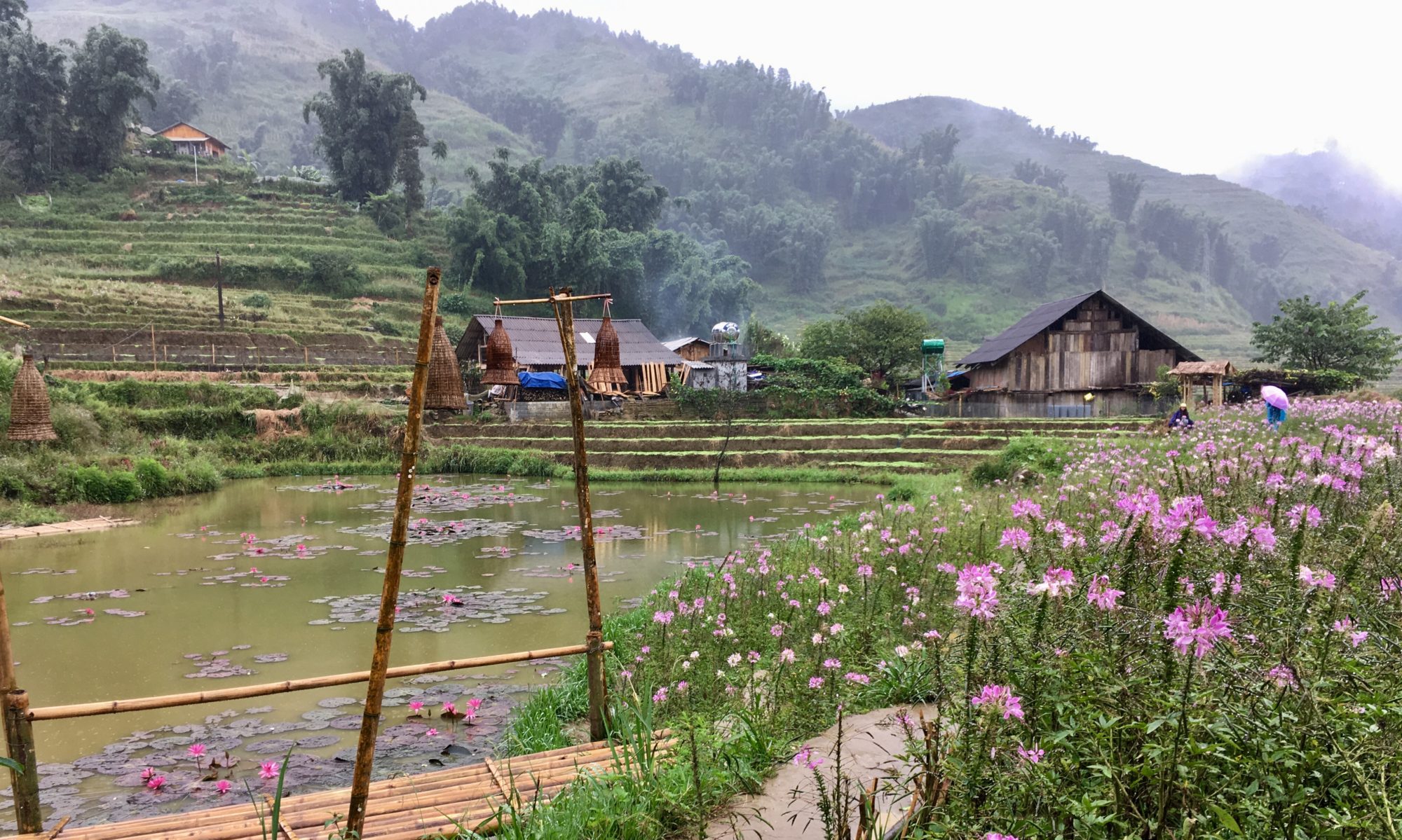My second impression of Yangon was of their breakfast. I can write an ode to the chicken noodles in coconut milk soup alone. It was a sweet wake up kiss in my tummy that cured jet lag. I found a recipe online that I’m going to attempt to make one day.


We began our day innocently enough at Botataung temple, where worshippers pray wedged in various corners of the gilded temple. Thar Thar, our guide, told us they did that so they wouldn’t be in the way of foot traffic. Even during mid-morning on a weekday, the temple was full. We had to squeeze our way through the corridors next to walls of shelves filled with antique relics donated to the temples. There were old Buddha statues, rings and necklaces, pink rubies and green emeralds on a silver tea set.


According to local lore, the temple was built 2,500 years ago. Then during WWII, on November 8, 1943, the Royal Air Force (RAF) completely destroyed it. It was only rebuilt after Myanmar gained independence in 1948. In the back of the temple is a pond where hundreds of turtles reside. It is their refuge. Thar Thar bought a plate of vegetables and popcorn from a vendor and gave it to us to feed the animals.

After, we took the ferry across the Yangon River to a fisherman’s village. Traveling by ferry is popular among the locals. We tottled slowly onto the boat through the crowd before we made our way upstairs toward the back where the welcomed breeze dried our sweat-drenched faces.


At the fisherman’s village, we saw the daily life of Burmese families. Their days are ruled by the ebb and flow of the river. The men had just come back from a fishing excursion. The delicious scent of fish frying on charcoal stoves rose from inside their long-tail boats, reminding us that lunchtime was approaching. Thar Thar yelled out to the fishermen for a taste of the fish. But her request was either ignored or not heard.


We rode on trishaws under the blazing southeast Asian sun through a neighborhood of corrugated-roof homes. We past expansive green rice fields where young men fought kites with each other. Happy children waved while geese and goats made way for our 4 trishaws to go through.



Our final destination was a non-profit boarding school that educates children from ages 5-13 from all over Myanmar. But before that, we made a couple of stops at the stores and shopped for bags of rice, snacks, and supplies. They were about to run out of rice and had completely ran out of school supplies so we were happy our timing was right. It cost each of us less than we would spend on a dinner in the U.S. for what would feed them for at least a month. Mind. Blown.

The students sang 2 English songs for us and I sang one in return. I don’t think we understood each other but lots of smiling always come in handy in a place where language is a barrier. We played a couple of games which I never got a hang of. Before we said our goodbyes, Laurie practically assaulted each kid with a hug. Then we went back toward where we came.

We spent our last hour in Yangon in the humid innards of a local train. Commuters stood packed like sardines no different from those in New York City would on a subway. Except this train car was neither air-conditioned nor fast. It was on Bobby’s bucket list and we all went along. This is the cheapest way to travel for work, our guide said. As my back drip sweat in the suffocating heat, I was grateful that I don’t have an hour daily commute to work on a hot train.

We couldn’t have had this experience in Yangon without our guide, Thar Thar from LM Travel Myanmar. She wanted us to see the not-so-touristy side of this city. One day expectations from the outside will overtake it. As the world contracts, we realized that responsible tourism has never been so crucial. So many ‘3rd world countries’ have suffered at the hands of tourism. Their culture and environment pockmarked by the demands for convenience and technology from their visitors. It is our hope to leave each place we visit a little better than before, or at least not destroy it in our quest for life experiences.


